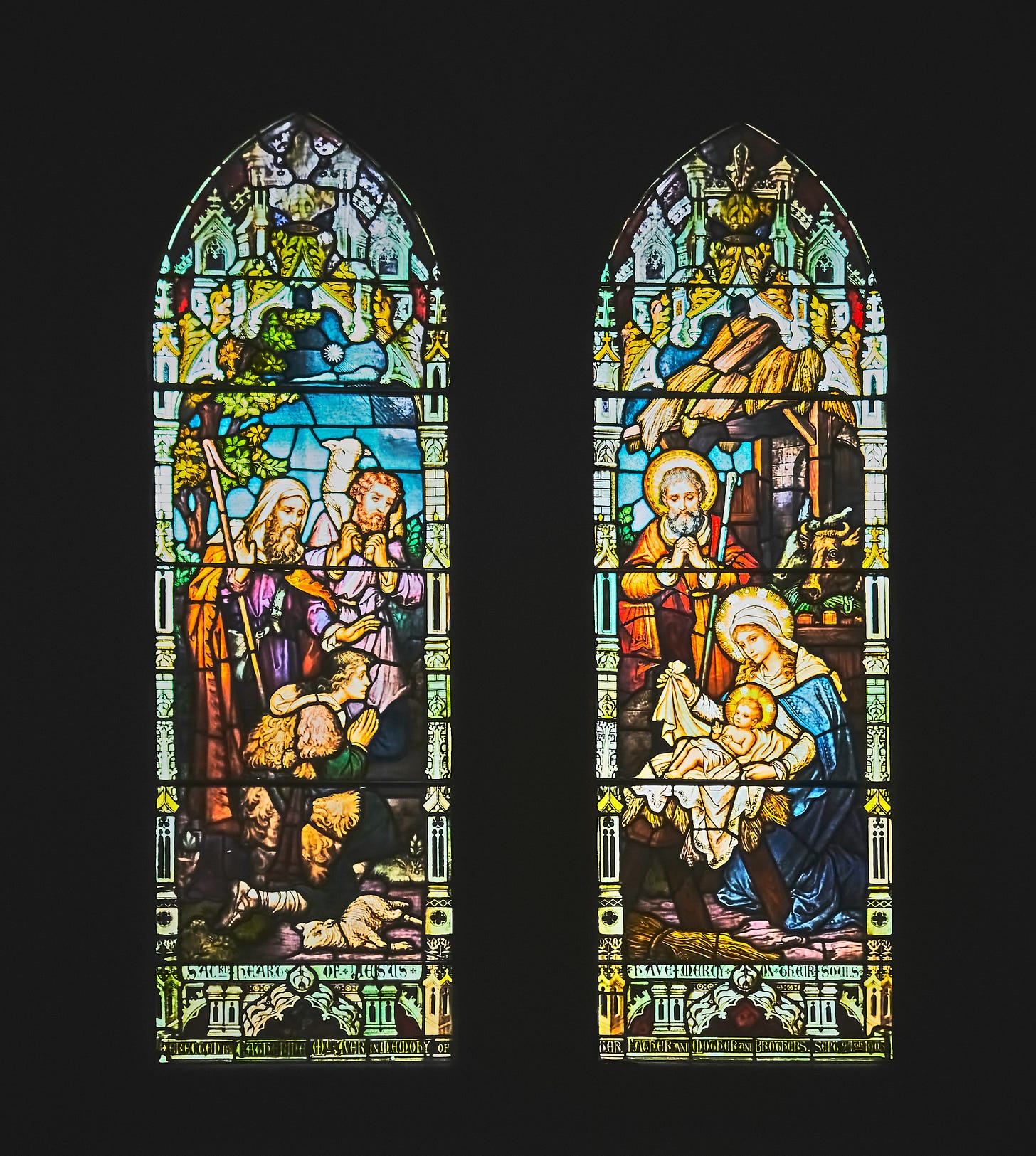The Word Becomes Flesh
Homily for Tuesday, December 24th, 2024: Christmas Eve Mass During the Night

“Once upon a time…”
A lot of old stories begin that way. Or, “Long ago, in a faraway land,” or more recently, “A long time ago in a galaxy far, far away…”
Those folk tales and legends and mythologies that begin like this exist somewhere apart from our own time, our own place. They take us out of our ordinary everyday experiences and into the magical land of Narnia or Middle Earth.
In our first reading, the prophet Isaiah seems to be looking into Mythological time, to a more hopeful time – a time outside of time. He prophesies of things that have yet to happen, but which are already assured by God.
He is also rooted in the present situation of the Assyrian oppression he and his fellow Israelites have been living through. The yoke that burdened them, the pole on their shoulder, the rod of the taskmaster – these symbols of their Assyrian oppression, these current realities Isaiah puts in the past tense, saying God has smashed them as on the day of Midian. Those who walked in darkness have seen a great light.
When he goes on to speak of the coming of the Messiah, it is in the present tense: A child is born to us, a son is given us! All this, Isaiah speaks about in God’s time – a time outside of time.
That might be why Luke’s Gospel account of Jesus’s birth begins by surrounding it with historical markers. In those days, he says, Caesar Augustus published a decree; while Quirinius was governor of Syria. And at this specific point in human history, Luke describes a rather ordinary and unremarkable event. A child is born; one of hundreds, probably, born that same day. It’s a humble and unremarkable birth.
The Christian author and philosopher CS Lewis once made the point that at the heart of Christianity is a myth that became fact. Our world, he observes, is full of ancient stories of sons of gods born to mortal women; we have myths of gods who die and come back to life again.
As Lewis says, “The old myth of the dying god, without ceasing to be myth, comes down from the heaven of legend and imagination to the earth of history. It happens-‐at a particular date, in a particular place, followed by definable historical consequences.”
Here tonight we celebrate the Incarnation; that the Word of God has become flesh and dwelt among us. God has inserted himself into human history, to live as we live and to die as we die. To be part of our day-to-day, to experience the mundane ordinariness of life. So even the mundane and the ordinary are made sacred. Every part of our lives, every part of our world becomes tinged with the Divine because Christ Himself walked this earth and shared in our humanity.
We see this most clearly in the sacraments, but the sacraments are just the tip of the iceberg. They are the gateway through which we encounter Christ and receive his grace; and once received in this way we are opened up to all the other ways that Christ is present in our world.
When we receive the True Presence of Christ as bread and the wine of the Eucharist, we can then recognize His presence in every meal we share with one another. When a man and woman are united in Christ in sacramental marriage, they can recognize his sacred grace in every touch, every conversation, every joy and sorrow of their life together. The sacraments are how we claim our share in the divinity of Christ, who humbled himself to share in our humanity.
One thing I most appreciate about CS Lewis is that he never seemed to lose his sense of wonder at the old fables, tales, and mythologies. And he understood that when myth becomes reality, the myth is not diminished; rather, reality is transfigured.
In the time of Caesar Augustus, when Quirinius was governor of Syria, the Supreme Author of All Life and All Creation was born into this world as an infant. And he comes to us here, now, in the Sacrament, to bring us into his divine life. Let us pray that we never lose a sense of awe and wonder at what God has given us.

